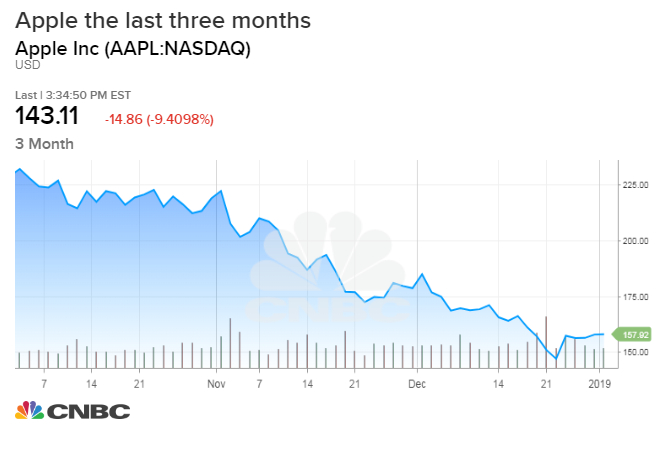Sharp Drop In iPhone Sales Raises Questions
A cnbc.com article reports on the ripple going against production and sales of Apple’s iPhone. Both China and the U.S are beginning to see their economies slow down after years of healthy growth, which has been compounded by a U.S.-China trade war that has begun to impact certain industries.
 Now comes word that Foxcomm, which builds the iPhone, has changed its mind about the original investment of $10 billion to build a manufacturing plant for Apple in Wisconsin. The company has since backed off on the statement, but no definitive plans have been announced.
Now comes word that Foxcomm, which builds the iPhone, has changed its mind about the original investment of $10 billion to build a manufacturing plant for Apple in Wisconsin. The company has since backed off on the statement, but no definitive plans have been announced.
Apple’s sales shortfall in China and a sudden slip in the U.S. manufacturing economy are the latest signs that the Trump administration’s trade war with China is hitting home. That could help bring it to an end, some economists and analysts said.
China’s economy has been limping, but Apple’s revelation Wednesday that its iPhone sales in China fell off sharply in November provided further proof that the U.S. trade war is hurting U.S. companies and potentially the domestic economy. Shortly after Apple’s announcement, ISM manufacturing data Thursday fell to the lowest in more than two years.
“This is probably one of the first data points that indicates things domestically in the U.S. economy might be slowing a bit,” said Michael Gapen, chief U.S. economist at Barclays.
In fact, Apple rumors have ranged from how higher tariffs may force production cutbacks to how they may incite the company to pick up and move production to an entirely different country.
As the trade war began to heat up and industries such as midwest soybean producers, and motorcycle manufacturers such as Harley Davidson and others have either had to have government assistance or they’re planning to move their factory operations out of the U.S.A, and nearer to their markets in Asia.
On Dec. 1, President Trump and Chinese President Xi Jinping agreed to a cease-fire in the trade war, which gives them some breathing room until the March 1st deadline. This may have Apple executives thinking no further rise in tariffs could be workable for their bottom line. But a huge jump in tariffs, say 25%, would almost be crippling for iPhone sales.

Another reason for Apple’s slipping market share could very well be due to the price. iPhones aren’t cheap these days. Apple also points out that people are taking longer breaks between purchasing phones. They are lasting longer and sales are bound to suffer.
In an unusual warning in early January 2019, Apple said its fiscal first-quarter revenue would be $84 billion, down from the $89 to $93 billion it previously expected.
As the deadline looms, President Trump said in a statement on January 31 that he expects delays in the “very big” deal with China.








Leave A Comment